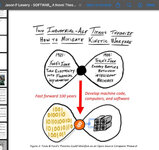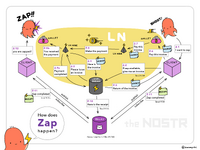@GoodShepherd asked about Bitcoin use in warfare, I gave the best answer I have.
Cyberwarfare of today is very asymmetrical: the attacker has a huge advantage, because attacking is nearly cost-less, but the defender could suffer serious damage.
How does the defender impose a severe cost on the attacker? Computational proof-of-work, invented by Hal Finney to impose a severe cost on email spammers, is what secures Bitcoin.
Proof-of-work can be directly used to secure data systems…but an easier, more efficient way is to use Bitcoin itself, as a proxy for proof-of-work. For example: to remote in to a sensitive system - require a signature from a Bitcoin wallet you control. Even better, require a transaction to a specific wallet for actual Bitcoin. The cost to the defender is a Bitcoin transaction fee. The cost to the attacker would be a certain amount of Bitcoin, presumably a large amount - perhaps an amount so large that the attacker cannot possibly have so much. The nation with a larger bitcoin reserve could make such an attack so costly as to be impossible.
I suggest reading the book, if you are curious enough. I would like your take on it after reading it, but I truly understand if you think it’s a waste of time.
Data is highly mobile and distributable. Just as industry supplanted agriculture in strategic importance, energy and data will supplant industry. A large scale kinetic war, with the objective of securing extra farmland (ancient), or an industrial base with tax slaves (modern war), will give way to a different type of war.






